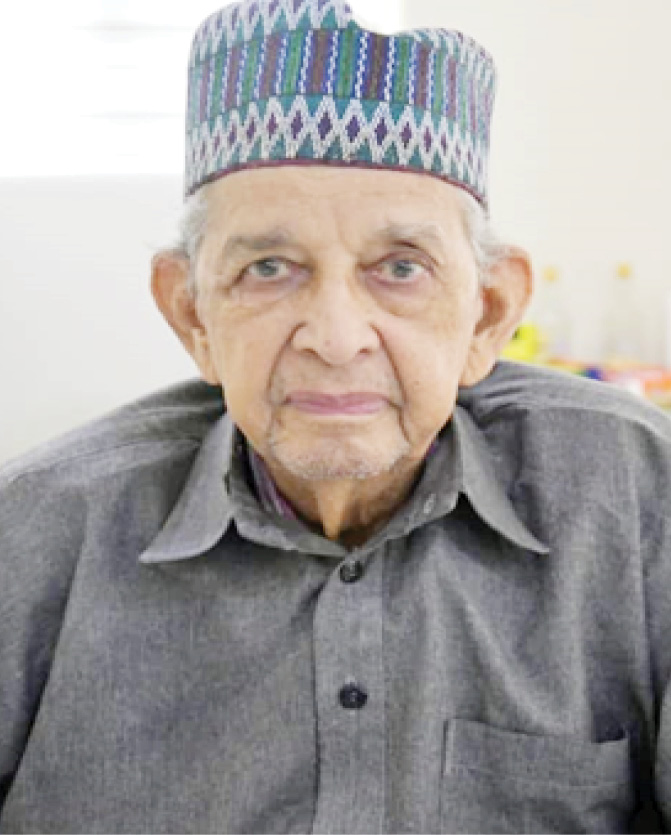Nigeria should first get primary healthcare delivery right
Professor Emeritus Umaru Shehu is the chairman of the board of directors of the Institute of Human Virology, Nigeria (IHVN). Shehu, who is a one-time president of the Nigerian Academy of Science, in this interview speaks about infectious and non-infectious diseases, the IHVN International Research Centre of Excellence (IRCE), ways to address challenges in the […]

Emeritus Umaru Shehu
Professor Emeritus Umaru Shehu is the chairman of the board of directors of the Institute of Human Virology, Nigeria (IHVN). Shehu, who is a one-time president of the Nigerian Academy of Science, in this interview speaks about infectious and non-infectious diseases, the IHVN International Research Centre of Excellence (IRCE), ways to address challenges in the health sector, among others.
With your experience in medical practice and academics, especially in providing medical education in Nigeria, what do you think the country should do to get it right in the provision of quality healthcare service delivery to its citizens?
The things Nigeria can do include funding and making the health sector and education a priority, and ensuring these funds are used judiciously with proper administration by competent hands.
APC presidential ticket: Senators divided over moves to pick Lawan as consensus candidate
The agony of Biafran war veterans
What should the country do to effectively curb infectious and non-infectious diseases?
There are always protocols that are followed when dealing with infectious and other diseases. They are basic, but they also work in curbing infections. There is need to educate Nigerians about how important their roles are, and what part they can play.
Most times it involves just following simple instructions such as hand washing, wearing masks and social distancing as we experienced during the COVID-19 pandemic.
Others include research and development, finding cures and making vaccines to manage diseases and prevent spread.
Medical tourism is still a problem in Nigeria, and many facilities now lack specialists as they have emigrated for greener pastures. What is the way out?
There will always be medical tourism as long as people can afford it, so also the migration/emigration of doctors and other professionals.
But we need to appreciate our medical personnel by providing the best working environment for them and enough incentives and adequate medical remuneration to keep them here.
This would obviously require more funding from government and the private sector. The health sector needs to be given top priority and the attention it deserves. The health of a people should always take precedence and priority over anything else.
The primary healthcare system in the country is still not what it was envisioned to be. What mechanisms do you think should be put in place to provide quality care at the grassroots and integrate comprehensive care?
Primary healthcare is the building block of any efficient and advanced healthcare system. Therefore, we need to go back and get primary healthcare delivery right first, before we can be able to provide a robust and more advanced healthcare system in Nigeria.
So you start off with equipping and staffing of primary healthcare clinics that serve the grassroots.
You helped lay the foundation of the recently completed IHVN International Research Centre of Excellence (IRCE) about five or six years ago. How do you think this campus will contribute to research, especially in the areas of HIV/AIDS, tuberculosis, COVID-19 and other viruses?
Having laid the foundation for the new building, I am extremely happy and proud to see its completion.
The new campus will provide a dedicated centre, better facilities and an enabling environment for the research and study of ways to control and treat bacterial, viral and other diseases such as HIV/AIDS, tuberculosis, COVID-19 and new diseases that may emerge.
At the time of commissioning this laudable project, my obvious fear and concern was that of not getting the needed and necessary funding to complete the project and get it running. I’m happy to say that my fears proved unfounded. The private sector, including various non-governmental organisations, rose to the occasion, trusted our vision and had faith in us and the work that we do.
With the success of this project, wholly from public donations, what is your advice for the private sector and NGOs in supporting government to provide quality healthcare services to Nigerians?
The success of this project has shown what we can achieve when government and the private sector come together for the collective good.
The institute’s work, progress and success are something that concern all of us and would therefore be of benefit to everyone. Private sector participation in the welfare and well-being of our people/country cannot be overemphasised. It should be a civic duty. We need to see more of this kind of collaboration.
